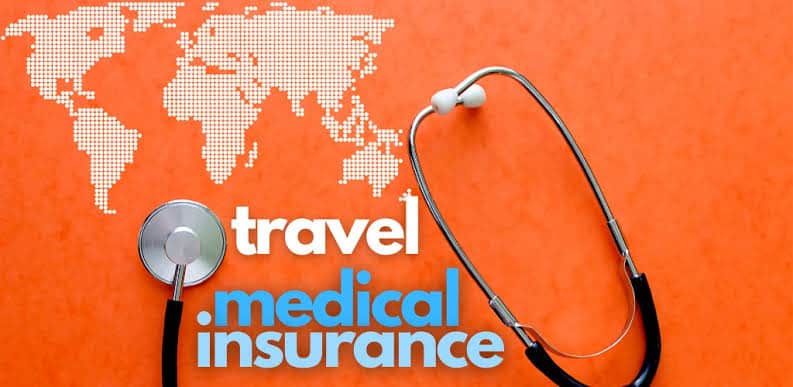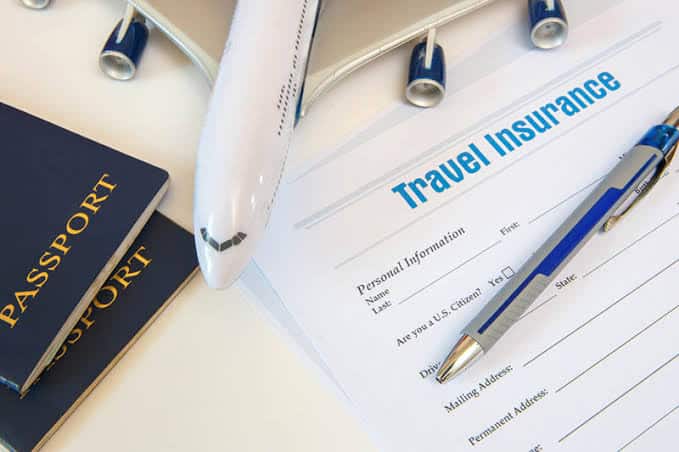Do you like to travel? Whether you’re jetting off to exotic destinations or exploring new locations, safeguarding your health is very important. That is why we shall discuss “A Guide To Travel Health Insurance” in this guide.
Introduction To The Topic “A Guide To Travel Health Insurance”
Here, we will dig deep into the world of travel health insurance, arming you with the knowledge and insights needed to navigate the complexities of coverage options and make informed decisions for your upcoming trips. From understanding the fundamentals of travel health insurance to unraveling the intricacies of policy types and claims processes, consider this your go-to resource for ensuring peace of mind on your journeys.
Join us as we embark on a journey to explore the benefits, considerations, and essential tips for securing the right travel health insurance coverage. Whether you’re a seasoned globetrotter or a first-time explorer, this guide is your passport to safe and worry-free travels.
What Is Travel Health Insurance?
Travel health insurance, often referred to simply as travel insurance, is a specialized type of insurance designed to provide coverage for medical expenses and other related costs that may arise while traveling. It offers protection against unforeseen circumstances such as illness, injury, or medical emergencies that can occur during your trip.

Recommended: Transforming Passions into Careers: The Ultimate Guide to Universal Technical Institute (UTI)
Types Of Travel Health Insurance Policies
When it comes to securing travel health insurance, there are various types of policies available to suit different travel needs and preferences. Understanding the different types of travel health insurance policies can help you choose the right coverage for your upcoming adventures.
1. Single-Trip Insurance:
Single-trip insurance, as the name suggests, provides coverage for a single trip or vacation. This type of policy is ideal for travelers embarking on a one-time journey and offers coverage for the duration of that specific trip. Single-trip insurance typically includes medical coverage, emergency assistance services, and trip protection benefits such as trip cancellation/interruption coverage.
2. Multi-Trip Insurance:
Multi-trip insurance, also known as annual or frequent traveler insurance, provides coverage for multiple trips within a specified period, usually one year. With a multi-trip insurance policy, you can enjoy the convenience of continuous coverage for all your travels throughout the year, without the need to purchase separate insurance for each trip. This type of policy is ideal for frequent travelers who embark on multiple trips annually.
3. Long-Term Travel Insurance:
Long-term travel insurance is designed for travelers planning extended trips lasting several months or more. This type of policy offers continuous coverage for the duration of the trip, providing peace of mind and financial protection against unexpected medical expenses and emergencies while traveling long-term. Long-term travel insurance may also include additional benefits such as coverage for pre-existing medical conditions and emergency medical evacuation.
4. Specialty Policies:
In addition to the standard types of travel health insurance policies mentioned above, there are also specialty policies available to cater to specific travel needs and preferences. These may include:
- Group Travel Insurance: Designed for groups traveling together, such as families, friends, or corporate groups.
- Adventure Travel Insurance: Tailored for travelers engaging in adventurous activities such as hiking, skiing, or scuba diving, which may carry higher risks of injury.
- Senior Travel Insurance: Specifically designed for older travelers, providing coverage tailored to their unique health and medical needs.
Benefits Of Travel Health Insurance
Travel health insurance offers a plethora of benefits that are essential for ensuring a safe and worry-free travel experience. Let’s delve into some of the key advantages of having travel health insurance coverage:
1. Comprehensive Medical Coverage Abroad
One of the primary benefits of travel health insurance is its provision of comprehensive medical coverage while traveling. This coverage typically includes doctor visits, hospitalization, emergency room visits, surgery, prescription medications, and other necessary medical treatments. Having access to quality healthcare services abroad can be crucial in the event of unexpected illness or injury during your trip.
2. Emergency Assistance Services
Travel health insurance often includes access to emergency assistance services, which can be invaluable in times of crisis. These services may include 24/7 medical assistance hotlines staffed by healthcare professionals who can provide guidance and support in case of medical emergencies. Additionally, travel health insurance may cover medical evacuation and repatriation services, ensuring that you can receive timely and appropriate medical care, even in remote locations.
3. Trip Interruption And Cancellation Protection
Another significant benefit of travel health insurance is its provision of trip interruption and cancellation protection. If your trip is disrupted or canceled due to covered reasons such as illness, injury, or unforeseen events, travel health insurance can help reimburse you for non-refundable trip expenses, such as airfare, accommodations, and tour bookings. This coverage provides peace of mind and financial protection against unexpected disruptions to your travel plans.
4. Peace Of Mind For Travelers
Perhaps the most significant benefit of travel health insurance is the peace of mind it provides to travelers. Knowing that you have comprehensive medical coverage and access to emergency assistance services can alleviate concerns about potential healthcare expenses and unexpected emergencies while traveling. With travel health insurance, you can embark on your travels with confidence, knowing that you are protected against unforeseen medical expenses and emergencies.
5. Additional Benefits And Services
In addition to medical coverage and emergency assistance services, travel health insurance may offer additional benefits and services to enhance your travel experience. These may include coverage for trip delays, lost or delayed baggage, emergency dental treatment, and coverage for pre-existing medical conditions. By choosing a travel health insurance policy with comprehensive benefits, you can enjoy added peace of mind and protection throughout your travels.

Recommended: Digital and Real-World Marketplace: A Comprehensive Guide
What Does Travel Health Insurance Cover?
Travel health insurance typically covers a range of medical expenses incurred while traveling. This may include:
- Doctor Visits: Coverage for consultations with physicians or specialists while traveling.
- Hospitalization: Coverage for hospital stays due to illness or injury sustained during the trip.
- Emergency Room Visits: Coverage for emergency medical treatment received in hospital emergency rooms.
- Surgery: Coverage for surgical procedures necessitated by unforeseen medical conditions.
- Prescription Medications: Coverage for necessary prescription medications prescribed by a healthcare provider.
- Emergency Dental Treatment: Coverage for emergency dental treatment required due to injury or acute dental conditions.
How To Choose The Right Travel Health Insurance Policy
Choosing the right travel health insurance policy is essential for ensuring that you have adequate coverage to protect you during your travels. With so many options available, it’s important to consider several factors to select a policy that meets your specific needs and preferences. Here’s how to choose the right travel health insurance policy:
1. Assess Your Personal Health Needs:
Before selecting a travel health insurance policy, take some time to assess your personal health needs. Consider factors such as your age, overall health status, any pre-existing medical conditions, and the activities you plan to engage in during your travels. This will help you determine the level of coverage you need and any specific features or benefits that are important to you.
2. Consider Your Destination:
The destination(s) you plan to visit can have a significant impact on the type of travel health insurance policy you need. Consider factors such as the healthcare infrastructure and standards in your destination country, as well as any potential health risks or medical requirements for travelers. Certain regions may have higher healthcare costs or limited access to medical services, so it’s important to choose a policy that provides adequate coverage for your destination.
3. Compare Policy Options:
Once you have assessed your personal health needs and considered your destination, it’s time to compare policy options from different insurance providers. Look for policies that offer comprehensive medical coverage, emergency assistance services, and trip protection benefits such as trip cancellation/interruption coverage. Pay attention to coverage limits, exclusions, deductibles, and any additional benefits or services offered by each policy.
4. Check Customer Reviews And Ratings:
Before making a final decision, take the time to research customer reviews and ratings for the travel health insurance policies you are considering. Reading feedback from other travelers can provide valuable insights into the quality of coverage and customer service provided by each insurance provider. Look for reviews that highlight positive experiences with claims processing, emergency assistance services, and overall satisfaction with the policy.
5. Consider Cost And Deductibles:
While cost should not be the sole determining factor when choosing a travel health insurance policy, it’s important to consider your budget and compare prices across different policies. Keep in mind that cheaper policies may offer less coverage or have higher deductibles, so be sure to carefully review the terms and conditions of each policy to understand the total cost and any out-of-pocket expenses you may incur.
6. Review Policy Exclusions and Limitations:
Before purchasing a travel health insurance policy, carefully review the policy exclusions and limitations to ensure that you understand what is and is not covered. Pay attention to any pre-existing medical conditions that may be excluded from coverage, as well as any specific activities or circumstances that may void your coverage. If you have any questions or concerns about policy exclusions, don’t hesitate to contact the insurance provider for clarification.
Tips For Making Claims And Utilizing Coverage
Making claims and utilizing coverage are important aspects of travel health insurance that can help you navigate medical emergencies and unexpected situations while traveling. Here are some tips to help you effectively make claims and utilize your travel health insurance coverage:
1. Understand The Claims Process
Before you travel, take the time to familiarize yourself with the claims process outlined in your travel health insurance policy. Understand what documentation is required to file a claim, how to submit claims, and the timeline for processing claims. Knowing the claims process in advance can help streamline the process and ensure that you receive reimbursement for eligible expenses in a timely manner.
2. Keep Detailed Records
Throughout your travels, keep detailed records of any medical expenses you incur and any treatments you receive. This includes medical bills, receipts for prescription medications, and any documentation related to medical treatments or services. Keeping accurate records will make it easier to file claims and provide evidence to support your claim for reimbursement.
3. Contact Your Insurance Provider Promptly
In the event of a medical emergency or unexpected situation that requires you to seek medical treatment, contact your travel health insurance provider as soon as possible. Most insurance providers offer 24/7 assistance hotlines staffed by trained professionals who can provide guidance and support in case of emergencies. Be sure to follow the instructions provided by your insurance provider and keep them informed throughout the process.
4. Submit Complete Documentation
When filing a claim with your travel health insurance provider, be sure to submit complete documentation to support your claim. This may include medical reports, receipts, and any other relevant documentation related to your medical expenses and treatments. Providing thorough documentation will help expedite the claims process and increase the likelihood of your claim being approved.
5. Follow Up On Your Claim
After submitting a claim, be sure to follow up with your travel health insurance provider to track the status of your claim and ensure that it is being processed in a timely manner. If you encounter any issues or delays with your claim, don’t hesitate to contact your insurance provider for assistance and clarification. Stay proactive in following up on your claim until it is resolved satisfactorily.
6. Be Aware Of Policy Exclusions And Limitations
It’s important to be aware of any exclusions and limitations in your travel health insurance policy that may impact your coverage. Review your policy carefully to understand what is and is not covered, as well as any conditions or circumstances that may void your coverage.
Recommended: Personal Injury Attorney
Common Misconceptions About Travel Health Insurance
Despite its importance, travel health insurance is often surrounded by misconceptions that can lead travelers to underestimate its value. Let’s debunk some of the most common misconceptions about travel health insurance:
1. “I’m Already Covered by My Existing Insurance”:
Many travelers mistakenly believe that their existing health insurance policy provides adequate coverage for medical expenses incurred while traveling abroad. However, most standard health insurance policies have limited coverage outside of your home country.
They may not cover emergency medical treatment, medical evacuation, or other travel-related expenses. Travel health insurance is specifically designed to fill these gaps and provide comprehensive coverage for travelers while they are away from home.
2. “I Don’t Need Travel Health Insurance for Short Trips”:
Some travelers assume that travel health insurance is only necessary for long-term or international trips and may not see the value in purchasing coverage for short domestic trips. However, even short trips can pose risks of unexpected illness, injury, or medical emergencies that can result in significant medical expenses.
Travel health insurance provides protection and peace of mind for travelers of all durations, ensuring that you have access to quality healthcare services and financial assistance when you need it most.
3. “I’m Young and Healthy; I Don’t Need Travel Health Insurance”:
Young and healthy travelers may feel invincible and believe that they are unlikely to encounter medical issues while traveling. However, accidents and unexpected illnesses can happen to anyone, regardless of age or health status.
Travel health insurance is not just about protecting against existing health conditions; it’s about being prepared for the unexpected and ensuring that you have access to medical care and assistance services wherever your travels may take you.
4. “Travel Health Insurance Is Too Expensive”:
Cost is often cited as a deterrent to purchasing travel health insurance, with some travelers believing that the coverage is too expensive to justify. However, the cost of travel health insurance is typically minimal compared to the potential financial burden of medical expenses incurred while traveling abroad.
Additionally, many travel health insurance policies offer flexible coverage options and competitive pricing, making it more accessible than ever to obtain comprehensive coverage for your travels.
5. “I Can Purchase Travel Health Insurance Last Minute”:
Some travelers mistakenly believe that they can wait until the last minute to purchase travel health insurance, assuming that they can obtain coverage whenever they need it. However, travel health insurance typically requires advance purchase before your trip begins.
Coverage may be limited or unavailable if purchased after certain deadlines or once you have already departed. It’s essential to plan ahead and purchase travel health insurance well in advance of your trip to ensure that you have adequate coverage in place.
Recommended: Digital and Real-World Marketplace: A Comprehensive Guide
Conclusion
Navigating the world of travel health insurance is essential for every traveler, regardless of the destination or duration of the trip. Throughout this comprehensive guide, we’ve explored the importance of travel health insurance and delved into its various aspects, including coverage options, benefits, and tips for choosing the right policy.
Travel health insurance offers invaluable protection and peace of mind, providing coverage for medical expenses, emergency assistance services, and trip protection benefits. By understanding the key features of travel health insurance policies and debunking common misconceptions, travelers can make informed decisions and ensure that they have adequate coverage for their journeys.
Whether you’re embarking on a short vacation, a long-term adventure, or a business trip, travel health insurance is a vital investment in your health and well-being.

